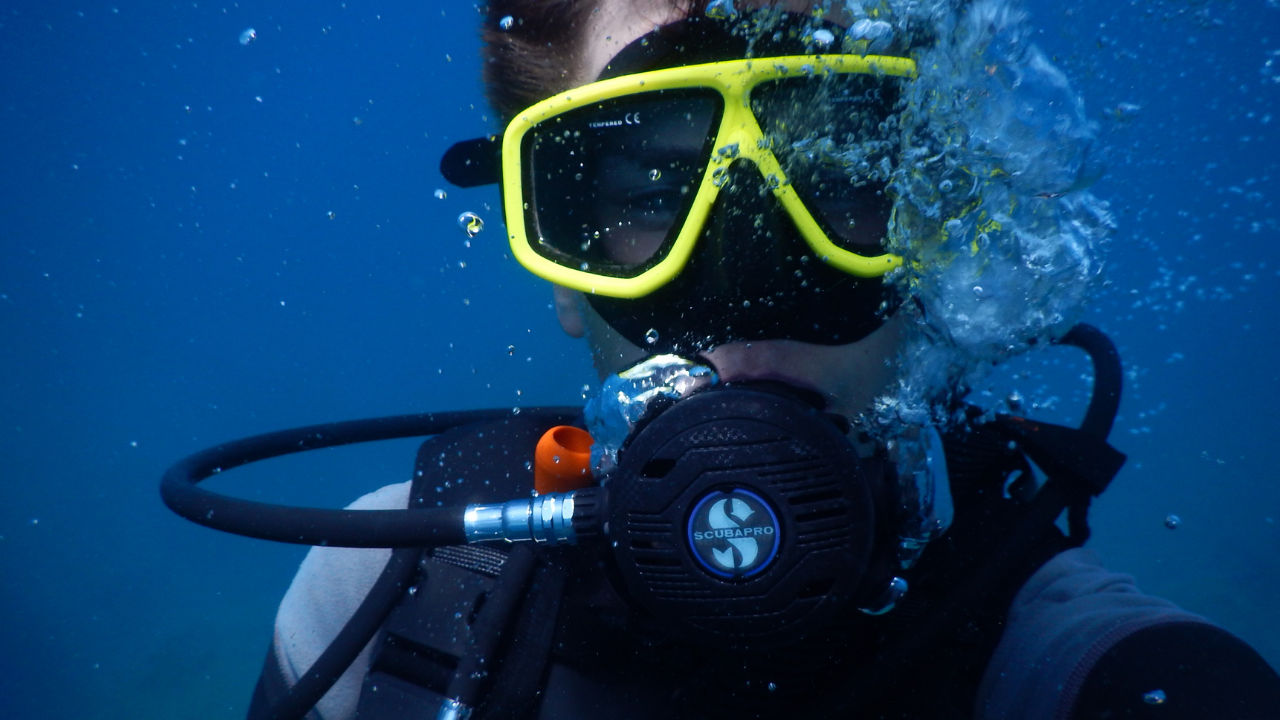
![]() Escrito por Yuliia Kliusa
Escrito por Yuliia Kliusa
5/26/2024 en Consejos
|
4 comentarios
Have you ever wondered how to consume less air while diving and enjoy more time underwater? Here we offer you practical and simple tips to improve your breathing efficiency and prolong your dives.
1. Controlled Breathing
The key to consuming little air while diving is to maintain controlled and relaxed breathing. Breathe slowly and deeply, making sure to expel all the air from your lungs before inhaling again. This type of breathing not only reduces air consumption, but also improves gas exchange in your lungs, making your dive calmer and less tiring.
2. Efficient Buoyancy
Having good buoyancy is crucial to consume less air. If you can stay stable without constantly inflating and deflating your buoyancy vest (BCD), you will use less energy and therefore less air. Practice the "Pivoting" exercise to learn to control your buoyancy using only your breath. Remember that your lungs act as an additional BCD, helping you rise and fall with each breath.
3. Minimize Equipment Volume
Carrying unnecessary equipment increases water resistance and causes you to use more air. Simplify your equipment to the essentials to facilitate your movement and reduce physical effort during the dive.
4. Position in the Water
Maintain a horizontal position while diving. This position reduces water resistance and allows you to move more efficiently, using less air.
5. Correct Weight
Choose appropriately the weights you need. Factors such as the type of water (salt or fresh), the thickness of your wetsuit, your body weight, and the size of your tank influence how much weight you should carry. A well-balanced weight improves your buoyancy and reduces the effort needed to move.
6. Good Physical Condition
Maintaining good physical condition will help you get less tired during the dive. Living a healthy lifestyle, not smoking, and exercising regularly will allow you to better handle the currents and other physical demands of diving.
7. Quiet Flutter
Avoid flapping your wings quickly as if you were in a race. Flap calmly to maintain a constant rhythm that does not speed up your breathing and allows you to consume less air.
8. Thermal Insulation
Wear a wetsuit appropriate for the temperature of the water in which you will be diving. Feeling cold during the dive can increase your air consumption and risk of hypothermia. Stay warm for diving with greater comfort and efficiency.
9. Diving Depth
Remember that the deeper you dive, the more air you consume. Plan your dives to stay at depths that allow you to extend your time underwater.
10. Experience
Practice makes a master. The more you dive, the more you will improve in all these aspects. Each dive will teach you something new and make you a more efficient and confident diver.
By following these tips, you will be able to consume less air while diving and enjoy your underwater adventures more. Get ready to explore the fascinating underwater world with confidence and comfort!
Comments
Spending little air underwater is one of the things that costs the most, and especially for novices. I find these tips very useful to improve consumption.
I took the Open Water last year and I have about 30 dives today. My air consumption is not too great, but I realized that some of my colleagues spend much less, even though it is true that they have more experience in diving. However, according to this article I see that experience is not the only factor that can influence air consumption. I find the article very interesting and I think it is quite useful for newbies.
I am a diver and I find these tips very useful.
What good advice! Thanks for sharing!